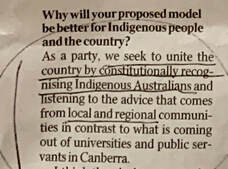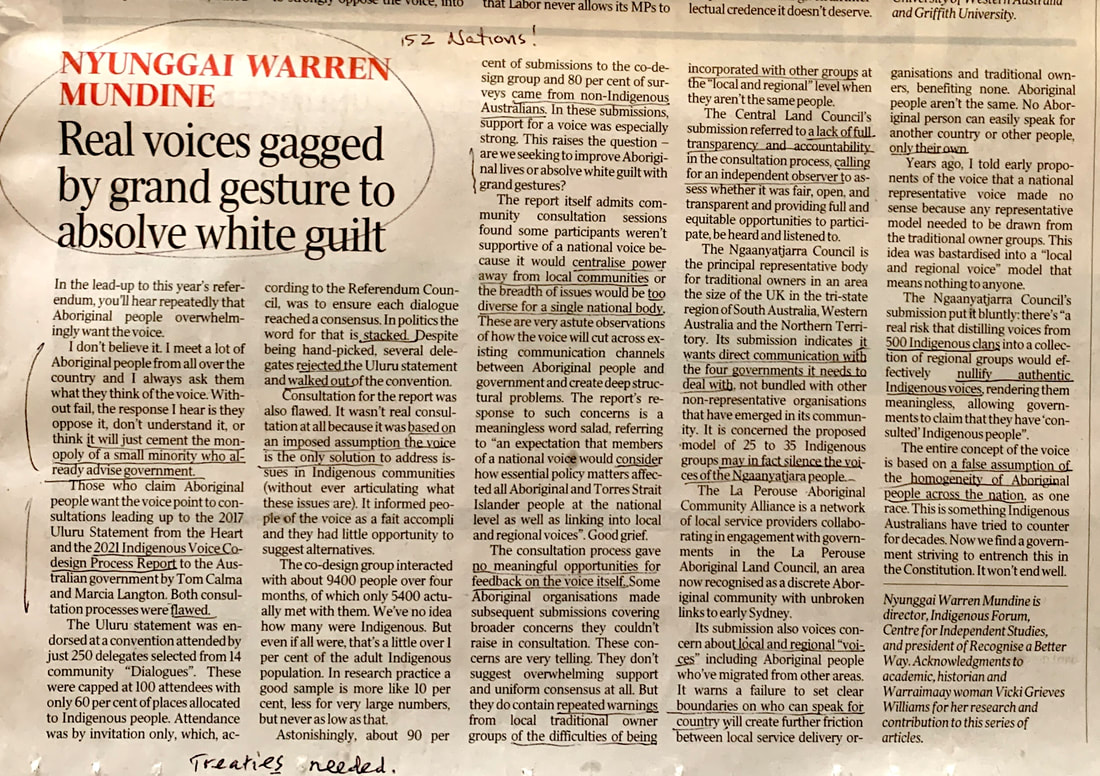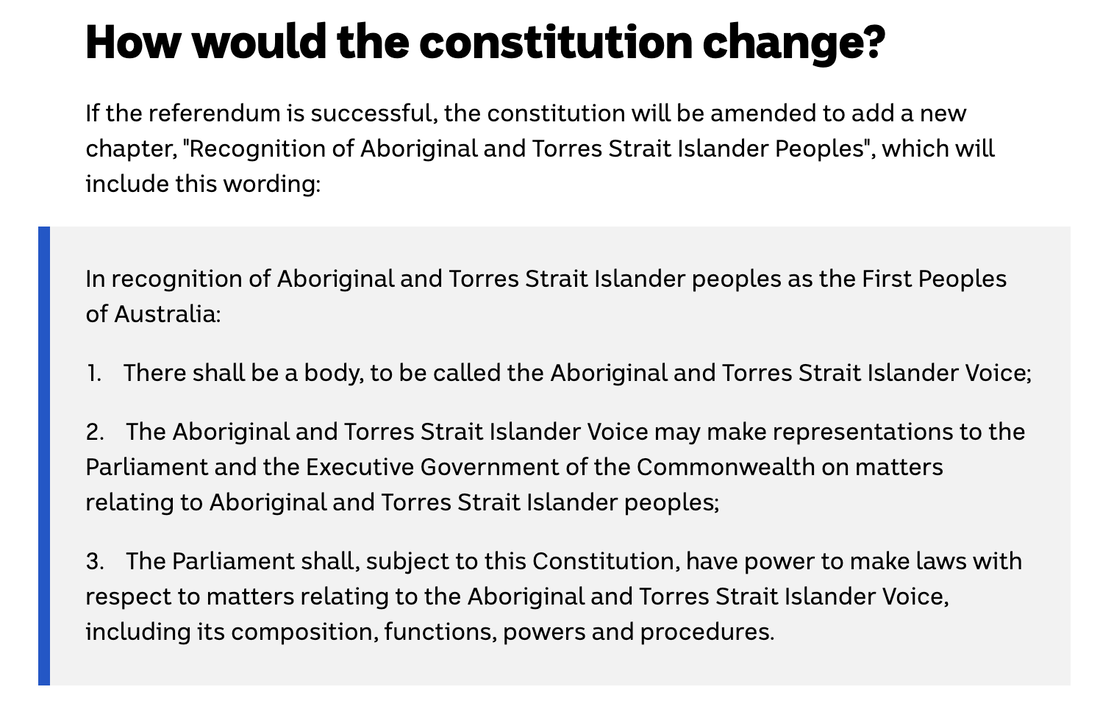 There are two questions in this referendum: 1) about constitutional recognition of Indigenous Australians, which is due; and 2) about a new national Voice mechanism. Part 1) already has bipartisan support. “As a party, we seek to unite the country by constitutionally recognising Indigenous Australians.” says Peter Dutton, (Weekend Australian 15 Apr 2023, p21 right.) [On the next page Peter Craven (ibid p22) gives a false premise by claiming, “the state of Australian politics now means you are for constitutional recognition or you’re against it.” That's clearly false. It's the divisive narrative, falsely casting opponents of the Voice mechanism as anti-recognition, even racist.] It's only part 2), the Voice, that does not have broad support. Warren Mundine makes that case (ibid p15 below). There are 150 plus aboriginal nations in Australia - who's voice will be represented in The Voice? And how can The Voice mechanism truly supersede existing processes when it promises to maintain the existing processes it claims don't work! Or do they actually work after all, in which case we don't need the Voice. If the Voice mechanism is a good idea, let it gain support on its own merits, not by forcing it into the constitution. Separate the issue of constitutional recognition from the Voice mechanism. So what words will be changed in the constitution? Here is the wording change as initially proposed in March '23: - One concern is about how submitted Australia would become to this "body," the Voice. Part 3 indicates the mechanism can be changed by parliament to suit the needs of the times. But still, how much political pressure would Voice representations have? Who could ignore them without being labelled racist? "Co-existing sovereignty" is an oxymoron, clearly divisive, yet precisely what is called for by the Uluru Statement from the Heart, which tells us the aims of the Voice.
- A second concern is that The Uluru Statement from the Heart clearly submits to a polytheistic worldview with which I do disagree. Albanese's position is to submit us to it: "While the Voice could be done without a referendum, Indigenous people asked in the Uluru Statement from the Heart for it to be enshrined into the nation's founding document as recognition for First Nations people." But I'm happy with the constitution's current first words, "Under Almighty God..." which belongs there, both absolutely and also because all religions, even Aboriginal, have a concept of a supreme Creator behind it all, even though some then diverge into polytheism and pantheism. And even atheists can agree that societies do better in reference to God, even if He's only a unifying concept (in their thinking.) But the Voice is to be created in reference to ancestral polytheism instead, and is Australia then to submit to this polytheism? Wiradjuri man Neville Naden explains reconciliation from a Biblical perspective - it's better. Here are some more on the theological considerations of aboriginal recognition - there are limits. Plus a fair read of the Uluru Statement also indicates a naive Cultural Marxist agenda (This link also takes you to the full Uluru Statement from the Heart not just the one pager. - A third problem to consider is that establishing the Voice as an extra mechanism separates out first peoples from the rest of Australians. Are we sure we want this? We can never be one people if this specific separation is constitutionally perpetuated. As a Christian I know that all nations ultimately can be united in Christ, as Christianity is the only truly multicultural worldview, (and it even has the foundation for allowing people to not choose Christianity.) Australia could be that kind of unified country, but would this constitutional change be a wedge against such ultimate unity? It is one thing to recognise that Aboriginal people were here first and we need to correct the lies and fallout from tera nullus, but it's another to enshrine a mechanism that will require & maintain two voices, never to become truly one. Constitutional recognition? yes, something in the constitution is due. The Voice mechanism? no, it will constitutionally commit us to ongoing racial separation, and conflicts over co-existing sovereignty. It is certainly not racist to refuse a divisive mechanism. That's why I think it very sad that Albanese is blowing this opportunity for constitutional recognition by imposing the Voice. The official referendum booklet of Yes/No cases includes other arguments not listed in this blog, but doesn't include the problems of polytheism or co-existing sovereignty. Nor does it address the very involved processes of the Voice that are being planned for all levels of governments, by the Indigenous Voice Co-design Process Final Report to the Australian Government July 2021. Comments are closed.
|
Categories
All
Archives
July 2024
|


 RSS Feed
RSS Feed